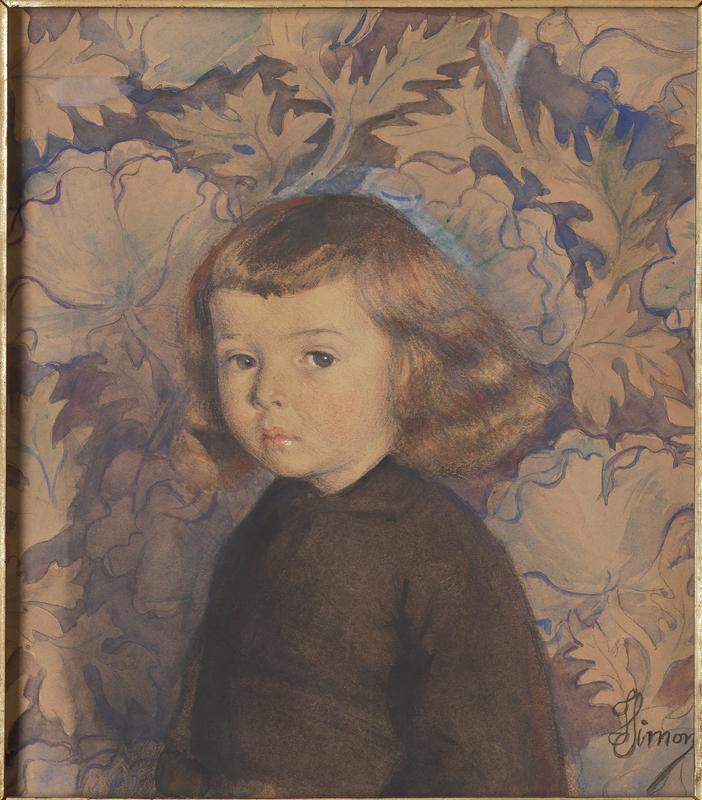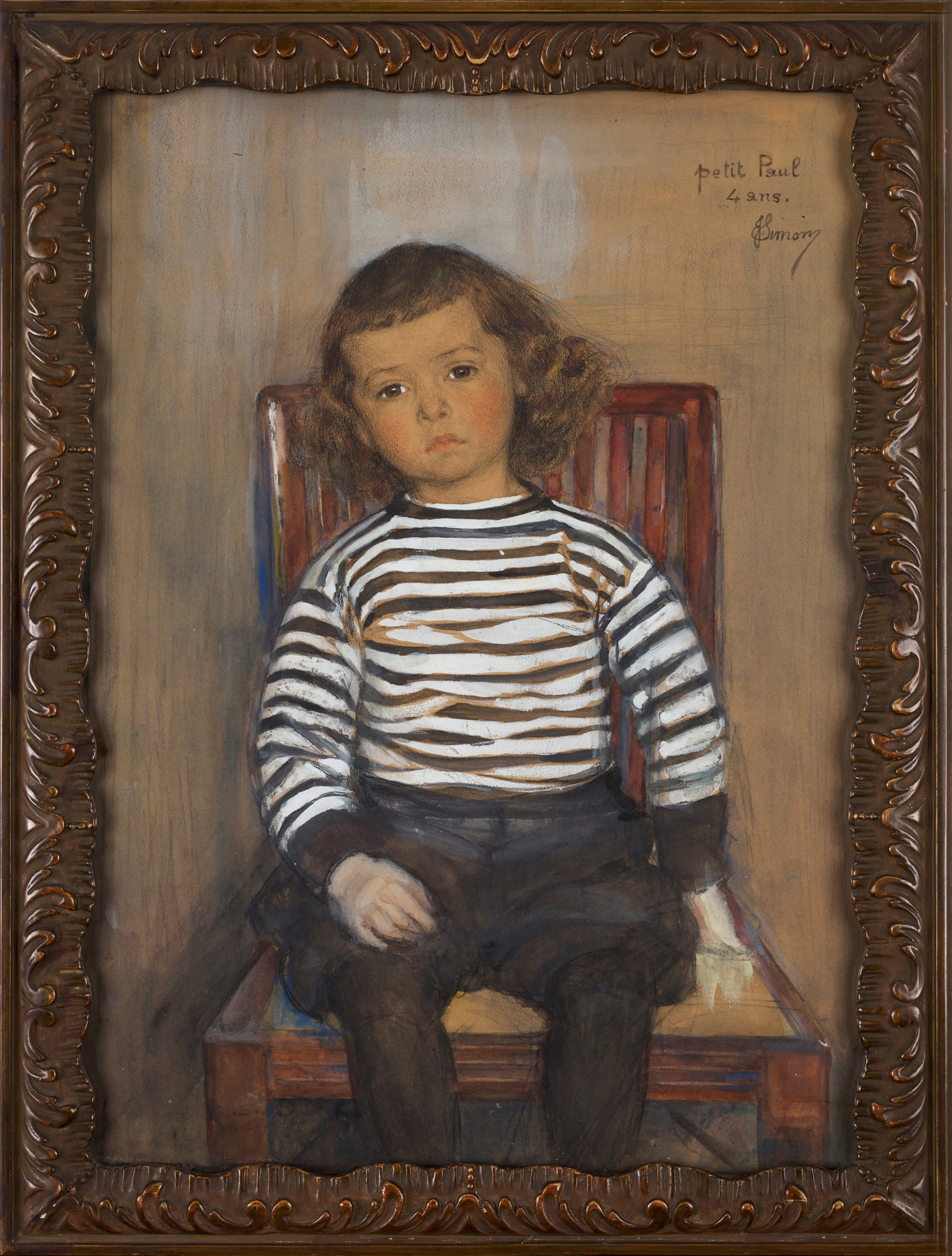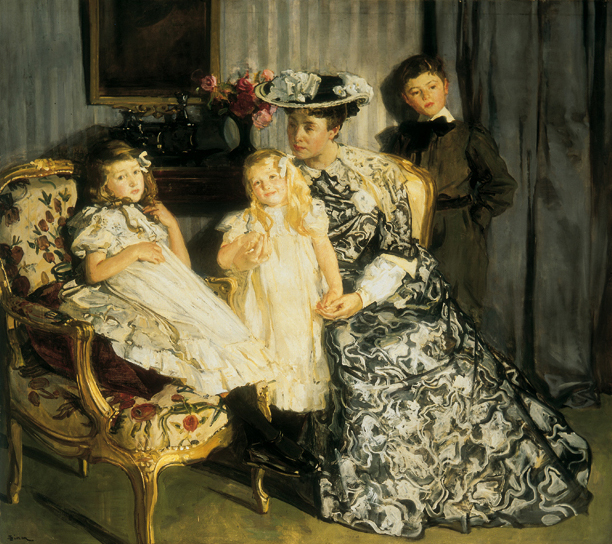
174. Jeanne Simon (née Dauchez), Paul Simon
| Artist | Jeanne Simon (née Dauchez), French, Paris 1869–Paris 1949 |
| Title, Date | Paul Simon, c. 1896 |
| Medium | Pencil, watercolor, and gouache |
| Dimensions | 10 5/8 × 9 1/16 in. (27 × 23 cm) |
| Inscriptions + Marks | Lower right: JSimon |
| Provenance | [Jane Roberts Fine Arts, Paris, until 2019; to Weisberg]; Yvonne and Gabriel Weisberg, Minneapolis |
| Exhibition History | "Reflections on Reality: Drawings and Paintings from the Weisberg Collection," Mia, 2022–23 |
| References | "Lucien Simon et Jacques-Emile Blanche, une histoire d’amitié" (exh. cat.), Jane Roberts Fine Arts, Paris (November 20–December 20, 2019), no. 14, ill. |
| Credit Line | Promised gift of Gabriel P. and Yvonne M.L. Weisberg, Minneapolis |
Although Jeanne Simon was overshadowed by her husband, the prolific painter of Breton peasant life Lucien Simon (1861–1945), she managed to build a substantial career of her own, and she did so while raising four children. Her subjects were landscapes, religious works, and portraits. For many years (1899–1933) she participated in the Salon des Artistes Français. She won a bronze medal at the 1900 Exposition Universelle in Paris. In 1929 she received a painting commission to decorate the chapel of Saint Catherine of Siena in the recently completed Church of Saint Dominic, in Paris’s fourteenth arrondissement.1

As a portraitist, Jeanne Simon was apt to choose sitters from her immediate circle, especially children. This likeness of her son Paul (1892–1979), then four years old, tells us that she was an accomplished artist several years before displaying her work publicly. Here, she stood her firstborn before a floral wall hanging. This is one of at least four portraits Simon made of Paul; all have him looking just as serious as this one (fig. 1).2 Her focus on children aligns her with the “cult of childhood.” Like many writers and painters of the late nineteenth and early twentieth centuries, she saw children as distinct personalities rather than as appendages of their parents, as was common before the 1860s.

Lucien Simon also made portraits of his children, as well as his wife (fig. 2), but he and Jeanne were not the only artists in the family. Jeanne’s younger brother was the painter André Dauchez (1870–1948). The couple’s eldest daughter, Charlotte, who married the writer François Aman-Jean, was a painter. Young Paul grew up to become a sculptor, concentrating on animals, often—despite the seriousness of his youthful countenance—with a touch of whimsy.
GPW
Notes
Lucien Simon et Jacques-Emile Blanche, une histoire d’amitié (exh. cat.), Jane Roberts Fine Arts, Paris, November 20–December 20, 2019.
↩︎